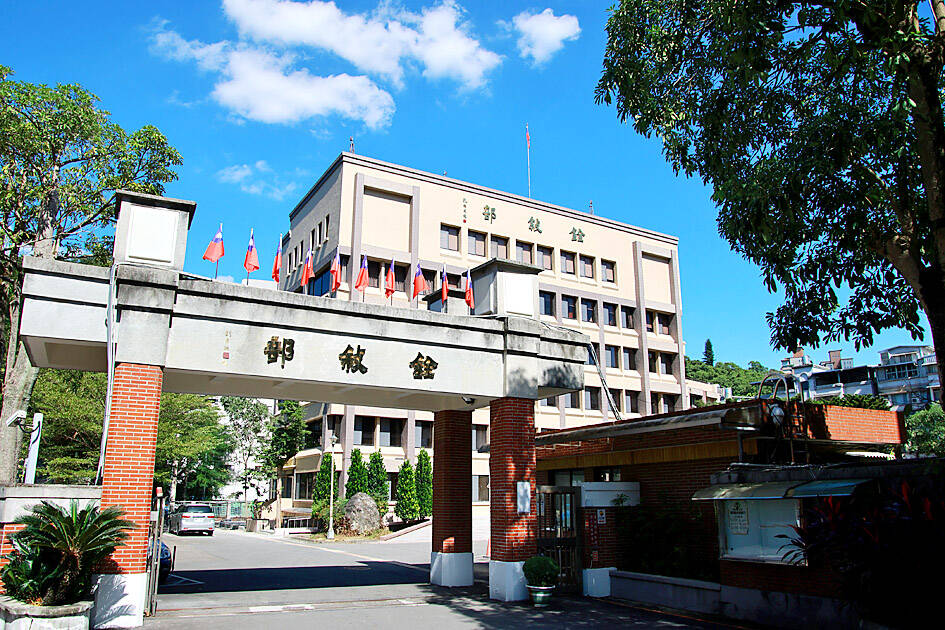Military personnel, civil servants and educators in Taiwan would be dismissed if they are found to hold any Chinese government-issued documents, the Mainland Affairs Council (MAC) said yesterday, following reports that civil servants would be required to sign pledges that they do not hold a Chinese ID.
The remarks came after the Ministry of Civil Service on Thursday last week issued notices to local governments requiring that civil servants sign a pledge that they do not have residency in China or possess a Chinese ID, including national identification, a residential certificate or passport.
It follows a similar directive issued by the Ministry of National Defense on Feb. 12.

Photo courtesy of the Ministry of Civil Service
The MAC issued a notice on Feb. 11 calling on the ministry and other relevant agencies to open investigations into whether civil servants, educators or military personnel held Chinese IDs.
Possession of such documents threatens national security and casts doubt on their allegiance, it said.
If confirmed, those contravening the law would lose their citizenship and eligibility to serve in the government, the MAC said.
All agencies employing civil servants should be mindful of their loyalty to the nation, as stated under Article 4 of the Civil Servants’ Appointment Act (公務人員任用法).
Civil servants should sign a pledge stating that they have not contravened Article 28 of the act, the civil service ministry said.
The ministry added there would not be an issue with it making extrapolated interpretations of the Act Governing Relations Between the People of the Taiwan Area and the Mainland Area (臺灣地區與大陸地區人民關係條例).
According to a report carried in the Chinese-language Storm Media on Wednesday, the office of Chinese Nationalist Party (KMT) Legislator Lo Chih-chiang (羅智強) said that the ministry’s request was at risk of overreach.
The ministry’s citation of Article 9-1 of the cross-strait relations act is valid, but it included Chinese ID cards and residential certificates, which are not included under Article 9-1, the office said.
If the government wished to launch investigations, it must do so with complete legal backing, or it would infringe on people’s rights, the office said.
Meanwhile, MAC spokesman Liang Wen-chieh (梁文傑) said that if civil servants are found to hold Chinese residency or have Chinese IDs, they would be deprived of their Taiwanese citizenship.
Liang called on civil servants to come forward, as per the case of the navy sailor surnamed Yang (楊), who was found to have a Chinese ID earlier this month.
Yang was able to retain his Taiwanese citizenship without visiting China to relinquish his ID, considering that his mother applied for him without his knowledge and he expressed a wish to keep his citizenship.
Liang said that the government could offer alternative ways of handling the matter, but added that such options would not be available if investigations show that one has dual citizenship.
Internet celebrity Pa Chiung (八炯) released a video late last year claiming that more than 100,000 Taiwanese already have Chinese ID cards, and the total number of applicants has reached 200,000.
The video has resulted in increased scrutiny of Chinese ID holders.

CHAOS: Iranians took to the streets playing celebratory music after reports of Khamenei’s death on Saturday, while mourners also gathered in Tehran yesterday Iranian Supreme Leader Ayatollah Ali Khamenei was killed in a major attack on Iran launched by Israel and the US, throwing the future of the Islamic republic into doubt and raising the risk of regional instability. Iranian state television and the state-run IRNA news agency announced the 86-year-old’s death early yesterday. US President Donald Trump said it gave Iranians their “greatest chance” to “take back” their country. The announcements came after a joint US and Israeli aerial bombardment that targeted Iranian military and governmental sites. Trump said the “heavy and pinpoint bombing” would continue through the week or as long

TRUST: The KMT said it respected the US’ timing and considerations, and hoped it would continue to honor its commitments to helping Taiwan bolster its defenses and deterrence US President Donald Trump is delaying a multibillion-dollar arms sale to Taiwan to ensure his visit to Beijing is successful, a New York Times report said. The weapons sales package has stalled in the US Department of State, the report said, citing US officials it did not identify. The White House has told agencies not to push forward ahead of Trump’s meeting with Chinese President Xi Jinping (習近平), it said. The two last month held a phone call to discuss trade and geopolitical flashpoints ahead of the summit. Xi raised the Taiwan issue and urged the US to handle arms sales to

BIG SPENDERS: Foreign investors bought the most Taiwan equities since 2005, signaling confidence that an AI boom would continue to benefit chipmakers Taiwan Semiconductor Manufacturing Co’s (TSMC, 台積電) market capitalization swelled to US$2 trillion for the first time following a 4.25 percent rally in its American depositary receipts (ADR) overnight, putting the world’s biggest contract chipmaker sixth on the list of the world’s biggest companies by market capitalization, just behind Amazon.com Inc. The site CompaniesMarketcap.com ranked TSMC ahead of Saudi Aramco and Meta Platforms Inc. The Taiwanese company’s ADRs on Tuesday surged to US$385.75 on the New York Stock Exchange, as strong demand for artificial intelligence (AI) applications led to chip supply constraints and boost revenue growth to record-breaking levels. Each TSMC ADR represents

Pro-democracy media tycoon Jimmy Lai’s (黎智英) fraud conviction and prison sentence were yesterday overturned by a Hong Kong court, in a surprise legal decision that comes soon after Lai was jailed for 20 years on a separate national security charge. Judges Jeremy Poon (潘兆初), Anthea Pang (彭寶琴) and Derek Pang (彭偉昌) said in the judgement that they allowed the appeal from Lai, and another defendant in the case, to proceed, as a lower court judge had “erred.” “The Court of Appeal gave them leave to appeal against their conviction, allowed their appeals, quashed the convictions and set aside the sentences,” the judges